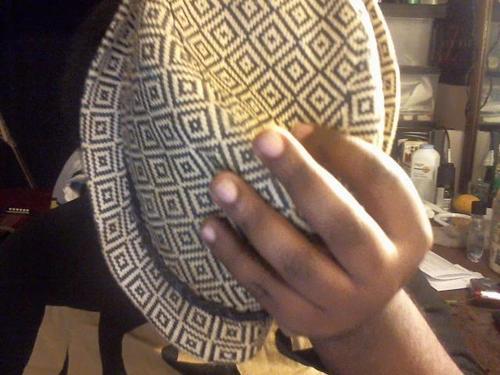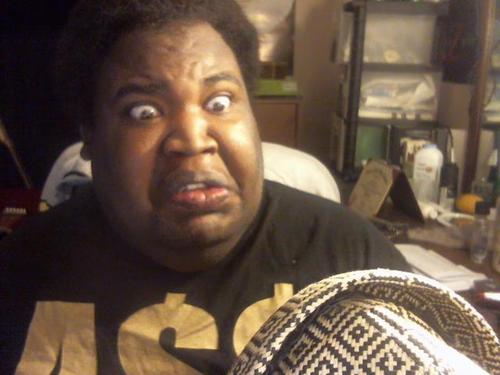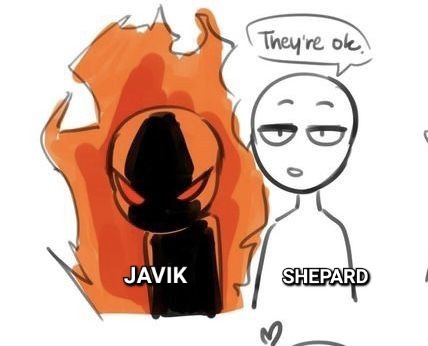Shakarian 🌌

Shakarian 🌌
art-trade with @armentarius
More Posts from Kitsune-fox-55 and Others
A murder mystery film set in a medieval village. After an outbreak of plague, the villagers make the decision to shut their borders so as to protect the disease from spreading (see the real life case of the village of Eyam). As the disease decimates the population, however, some bodies start showing up that very obviously were not killed by plague.
Since nobody has been in or out since the outbreak began, the killer has to be somebody in the local community.
The village constable (who is essentially just Some Guy, because being a medieval constable was a bit like getting jury duty, if jury duty gave you the power to arrest people) struggles to investigate the crime without exposing himself to the disease, and to maintain order as the plague-stricken villagers begin to turn on each other.
The killer strikes repeatedly, seemingly taking advantage of the empty streets and forced isolation to strike without witnesses. As with any other murder mystery, the audience is given exactly the same information to solve the crime as the detective.
Except, that is, whenever another character is killed, at which point we cut to the present day where said character's remains are being carefully examined by a team of modern archaeologists and historians who are also trying to figure out why so many of the people in this plague-pit died from blunt force trauma.
The archaeologists and historians, btw, are real experts who haven't been allowed to read the script. The filmmakers just give them a model of the victim's remains, along with some artefacts, and they have to treat it like a real case and give their real opinion on how they think this person died.
We then cut back to the past, where the constable is trying to do the same thing. Unlike the archaeologists, he doesn't have the advantage of modern tech and medical knowledge to examine the body, but he does have a more complete crime scene (since certain clues obviously wouldn't survive to be dug up in the modern day) and personal knowledge from having probably known the victim.
The audience then gets a more complete picture than either group, and an insight into both the strengths and limits of modern archaeology, explaining what we can and can't learn from studying a person's remains.
At the end of the film, after the killer is revealed and the main plot is resolved, we then get to see the archaeologists get shown the actual scenes where their 'victims' were killed, so they can see how well their conclusions match up with what 'really' happened.

Happy Ace Week!!! 🖤🤍💜
yesssssssssssssssss i haves it
Are fedoras really that bad?





YES YES THEY ARE
Listen, I know we all hc Dazai having angsty scars under his bandages (when we're not hc'ing that it's purely just for his pathetic loser aesthetic), but... what if instead, he was really hiding...
...Mafia tattoos.

Hear me out,
He was an angsty, teenage kid, high up in the mafia, with literally nothing to lose every day, and always looking for a way to feel more alive.
What if he got tatted the fuck up, now has to cover them because it doesn't fit his ADA aesthetic.

What about 15 Era bandages, you ask? Those were real injuries.
What about Dark Era bandages, you also ask? At that point he had them, but still used to cover them and pretend they were injuries so he could weaponize being underestimated in the mafia, and maybe only pulled back his sleeves or unraveled some gauze when he needed to be intimidating amongst his peers -- like gambling games with the other execs or something...
...
Somebody pls draw this, thnkx.

There are a couple more Garrus-Vakarian-related hills I'm willing to die on.
Maybe this particular bit of fanon has faded over the years, but there used to be a lot of insistence that Garrus is young and somehow inexperienced when he meets Shepard. Canon doesn't really support this. Turians start their mandatory service at 15. Garrus has at least a decade of experience. Even if he's 2-4 of years younger than Shepard (according to Patrick Weekes), he's got at least as much field experience as she does by dint of the difference in turian and human "enlistment" ages.
Garrus is really damn good at his job at C-Sec. You don't give the Case of Investigating the Rogue Spectre to a greenhorn. You give it to your best, most tenacious agent. Pallin may not always approve of Garrus's actions, but that doesn't actually stop him from putting Garrus on the tough case. Also, we don't know much about how C-Sec works but we do know a bit about how the turian hierarchy works, and we know C-Sec was essentially a turian initiative. That means it's a meritocracy where failure reflects on the superior, not the one who failed. So, in roughly a decade (Shepard's 29 in ME1; I always think of Garrus as about 27), Garrus has not only done shipboard military service, but he's also risen to be one of C-Sec's top investigators; Pallin wouldn't risk having Garrus's "failure" reflect poorly on HIM otherwise. I'd say that actually makes Garrus as remarkable in civilian law enforcement terms as Shepard is considered to be within the ranks of the Alliance military.
Of course Garrus was scouted by the Spectre program. And honestly, if his dad hadn't stepped in, I think Garrus would have become a Spectre, no problem. Especially for a turian, he's cut from precisely the cloth the Spectres would be looking for: extremely skilled, extremely capable, and--most importantly--he's a turian not just able but willing to work outside the chains of command that turians are taught from birth to revere and be loyal to above all else. This is the reason Pallin is leery about Spectres: he's a good turian. Good turians follow straight lines; they don't carve out their own paths.
Garrus's dad's not dumb, and he's not cruel, and he, too, rose to the top of the C-Sec hierarchy. He took one look at his kid, I think, and said, "I love my child, but I'd say it's a 50-50 chance he ends up a shooting-first-asking-questions-later Spectre like Saren Arterius, and I don't want to see that happen." Yeah, he uses his parental influence to try and jam square-peg-Garrus into round-hole-C-Sec and Garrus resents him for it, but there's no way he did it just to stop his son from getting his way or because he doesn't like Spectres. I expect Vakarian Sr. had to clean up more post-Spectre-interference messes than we can possibly imagine. But we also know he and Alec Ryder were pals later.
So the importance of what Garrus learns from a Paragon Spectre Shepard is this: You can't just do what you want and claim the ends always justify the means. That's what Saren does. Over and over again. Garrus's code and his idealism and his sense of justice and his ability to work alone should make him a great Spectre, actually, but he needs Paragon Spectre Shepard's actions to show him the lesson he tells her he's learned during ME1: "If the people I'm sworn to protect can't trust me... well, then I don't deserve to be the one protecting them." (And the seed of Archangel was planted.) I think for the first time he realizes that even though he believes his sense of justice to be correct, it doesn't matter for shit if he can't show others why that's so. And that's where the trust comes in. (Also, ow, the extra level of importance this gives their exchange where she tells him she trusts him and he tells her she's about the only friend he has left is... a lot. Cool, cool. I'm totally fine. Nothing to see here.)
When Shepard asks him what happened on Omega, he replies, "My feelings got in the way of my better judgement." Something tells me that this never happens to "good" turians, which just makes the line so much more devastating. And although the lesson some might take away from this is "feelings bad; no feelings ever," the "grey" that Garrus has to learn to deal with is precisely the grey of recognizing feelings, validating them even, but not acting on them until they've been examined. (Which is why my Shepard stands between him and Sidonis; she doesn't give a shit about Sidonis. But Garrus has refused to process his own feelings of failure and self-loathing, so they have to take the therapy session to the Citadel and deal with it there.)
Ahh yes. The mountain range of character analysis.










replaying mass effect 3, more specifically citadel dlc atm, so here's what it's inspired ✨️ - part one
(part two)
a list of 100+ buildings to put in your fantasy town
academy
adventurer's guild
alchemist
apiary
apothecary
aquarium
armory
art gallery
bakery
bank
barber
barracks
bathhouse
blacksmith
boathouse
book store
bookbinder
botanical garden
brothel
butcher
carpenter
cartographer
casino
castle
cobbler
coffee shop
council chamber
court house
crypt for the noble family
dentist
distillery
docks
dovecot
dyer
embassy
farmer's market
fighting pit
fishmonger
fortune teller
gallows
gatehouse
general store
graveyard
greenhouses
guard post
guildhall
gymnasium
haberdashery
haunted house
hedge maze
herbalist
hospice
hospital
house for sale
inn
jail
jeweller
leatherworker
library
locksmith
mail courier
manor house
market
mayor's house
monastery
morgue
museum
music shop
observatory
orchard
orphanage
outhouse
paper maker
pawn shop
pet shop
potion shop
potter
printmaker
quest board
residence
restricted zone
sawmill
school
scribe
sewer entrance
sheriff's office
shrine
silversmith
spa
speakeasy
spice merchant
sports stadium
stables
street market
tailor
tannery
tavern
tax collector
tea house
temple
textile shop
theatre
thieves guild
thrift store
tinker's workshop
town crier post
town square
townhall
toy store
trinket shop
warehouse
watchtower
water mill
weaver
well
wind mill
wishing well
wizard tower

Interspecies lesbianism
Source



They've been throwing Sigma's body from one side of the room to the other fifteen times??? I can't ever get over the fact that soukoku's default state is literally bullying the nearest unfortunate person together. It's almost as if they couldn't help it
-
 dracxula liked this · 1 month ago
dracxula liked this · 1 month ago -
 anrielsuol liked this · 1 month ago
anrielsuol liked this · 1 month ago -
 tildiet liked this · 1 month ago
tildiet liked this · 1 month ago -
 enbydiceeater liked this · 1 month ago
enbydiceeater liked this · 1 month ago -
 mcpdajuggalo reblogged this · 1 month ago
mcpdajuggalo reblogged this · 1 month ago -
 mcpdajuggalo liked this · 1 month ago
mcpdajuggalo liked this · 1 month ago -
 imm-k-g liked this · 1 month ago
imm-k-g liked this · 1 month ago -
 qlueless-queen liked this · 1 month ago
qlueless-queen liked this · 1 month ago -
 shadowheron2013 liked this · 1 month ago
shadowheron2013 liked this · 1 month ago -
 rashomari liked this · 1 month ago
rashomari liked this · 1 month ago -
 lamb-in-flowers liked this · 1 month ago
lamb-in-flowers liked this · 1 month ago -
 wasnevernew liked this · 1 month ago
wasnevernew liked this · 1 month ago -
 darthvega3 liked this · 1 month ago
darthvega3 liked this · 1 month ago -
 sociopathysword liked this · 1 month ago
sociopathysword liked this · 1 month ago -
 anonymous5sblog liked this · 2 months ago
anonymous5sblog liked this · 2 months ago -
 zencetera reblogged this · 2 months ago
zencetera reblogged this · 2 months ago -
 oriolethecookie liked this · 2 months ago
oriolethecookie liked this · 2 months ago -
 shuthememe liked this · 2 months ago
shuthememe liked this · 2 months ago -
 witchy-magix liked this · 2 months ago
witchy-magix liked this · 2 months ago -
 gea-latibule liked this · 2 months ago
gea-latibule liked this · 2 months ago -
 lismyname2 liked this · 2 months ago
lismyname2 liked this · 2 months ago -
 moisthairyfarts liked this · 2 months ago
moisthairyfarts liked this · 2 months ago -
 emerald-lili liked this · 2 months ago
emerald-lili liked this · 2 months ago -
 oneturiankindofwoman liked this · 2 months ago
oneturiankindofwoman liked this · 2 months ago -
 ciffy5 liked this · 2 months ago
ciffy5 liked this · 2 months ago -
 sheevanator liked this · 2 months ago
sheevanator liked this · 2 months ago -
 niteowl888 liked this · 2 months ago
niteowl888 liked this · 2 months ago -
 snivy-with-a-sword liked this · 2 months ago
snivy-with-a-sword liked this · 2 months ago -
 sweetreleaseofdeath liked this · 2 months ago
sweetreleaseofdeath liked this · 2 months ago -
 mishkiq liked this · 2 months ago
mishkiq liked this · 2 months ago -
 seekadventuure liked this · 2 months ago
seekadventuure liked this · 2 months ago -
 cloudy-owl liked this · 2 months ago
cloudy-owl liked this · 2 months ago -
 r2d2thless liked this · 2 months ago
r2d2thless liked this · 2 months ago -
 abyssiess liked this · 3 months ago
abyssiess liked this · 3 months ago -
 kingrolo72 liked this · 3 months ago
kingrolo72 liked this · 3 months ago -
 chimera-the-golden liked this · 3 months ago
chimera-the-golden liked this · 3 months ago -
 kyoshikicho-blog liked this · 3 months ago
kyoshikicho-blog liked this · 3 months ago -
 superballoon5 liked this · 3 months ago
superballoon5 liked this · 3 months ago -
 catch-all liked this · 3 months ago
catch-all liked this · 3 months ago -
 amandamhdz liked this · 3 months ago
amandamhdz liked this · 3 months ago -
 ship-from-shipping-and-receiving liked this · 3 months ago
ship-from-shipping-and-receiving liked this · 3 months ago -
 sonoluvr22 liked this · 3 months ago
sonoluvr22 liked this · 3 months ago -
 thegatorblues liked this · 3 months ago
thegatorblues liked this · 3 months ago -
 hera-defender-number1 liked this · 3 months ago
hera-defender-number1 liked this · 3 months ago -
 mousemumbles liked this · 3 months ago
mousemumbles liked this · 3 months ago -
 danikaivashkoff liked this · 3 months ago
danikaivashkoff liked this · 3 months ago -
 toadsbitch liked this · 3 months ago
toadsbitch liked this · 3 months ago -
 motherlizard liked this · 3 months ago
motherlizard liked this · 3 months ago
